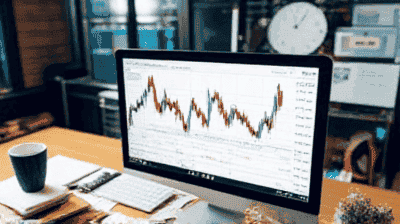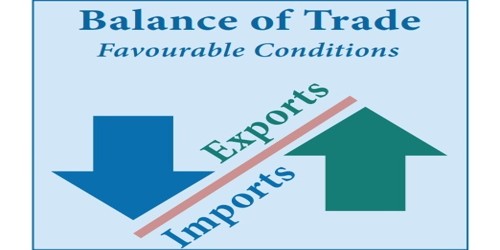
The foreign exchange market, also known as the forex market, is a global market where currencies are traded 24/7. It is the largest financial market in the world, with trillions of dollars in daily trading volume. While the forex market is known for its potential high returns, trading in this market carries a high level of risk due to its inherent volatility and unpredictability.
One of the crucial factors that impact trading in the forex market is forex market psychology. The way traders think, feel, and make decisions can have a significant impact on their performance and profitability. Understanding the psychological aspects of the forex market is essential for traders looking to improve their decision-making and overall trading success.
Key Takeaways:
- Forex market psychology plays a critical role in trading performance and profitability.
- The forex market is the largest financial market globally, with trillions of dollars in daily trading volume.
- Trading in the forex market carries a high level of risk due to its inherent volatility and unpredictability.
Understanding the Forex Market
The foreign exchange market, or forex market, is the largest financial market globally, with an average daily trading volume of over $5 trillion. It is a decentralized market where currencies are traded globally 24 hours a day, excluding weekends.
Currency trading involves buying one currency and selling another simultaneously, with the goal of making a profit from the difference in exchange rates. Forex trading occurs through a network of financial institutions, with banks and brokers acting as intermediaries.
The forex market operates in pairs, where one currency is traded against another. For example, the EUR/USD pair represents the euro against the US dollar. There are major currency pairs, minor currency pairs, and exotic currency pairs. Major pairs include USD/JPY, EUR/USD, GBP/USD, and USD/CHF, while exotic pairs include USD/SEK and EUR/NOK.
The forex market can be impacted by various economic and political factors, such as interest rates, inflation, and geopolitical events. Traders use various strategies and techniques, including technical analysis and fundamental analysis, to predict market movements and make informed trading decisions.
Emotions in Forex Trading

Emotions can have a significant impact on trading performance in the forex market. Fear, greed, excitement, and other emotions can all influence decision-making, leading to impulsive actions and poor results. It is essential for traders to understand and manage their emotions to achieve success in forex trading.
The Impact of Fear on Forex Trading
Fear is a common emotion that arises in forex trading. It can be triggered by market volatility, unexpected news, or a loss of capital. Fear can cause traders to abandon their trading plans, make impulsive decisions, and miss potential opportunities.
One way to manage fear in forex trading is by creating a solid trading plan. Having a plan in place can provide a sense of structure and discipline, reducing the impact of fear on decision-making. Traders can also use stop-loss orders and limit orders to help manage risk and minimize the impact of sudden market movements.
The Role of Greed in Forex Trading
Greed is another emotion that can impact forex trading. It can manifest as an excessive desire to make profits, leading traders to take on unnecessary risks and make poor decisions.
To manage greed in forex trading, it is important to have realistic expectations and goals. Traders should also avoid overtrading and stick to their trading plans. Maintaining emotional discipline and focusing on long-term success can help prevent greed from negatively impacting trading results.
Controlling Emotions in Forex Trading
Traders can take several steps to manage their emotions in forex trading. These include identifying emotional triggers, maintaining a positive mindset, practicing mindfulness and meditation, and seeking support from other traders or mental health professionals.
It is also important for traders to recognize and overcome emotional biases that can influence decision-making. These biases can include confirmation bias, overconfidence, and loss aversion. By understanding these biases and developing strategies to overcome them, traders can make more rational and objective decisions.
Summary
Managing emotions is essential for success in forex trading. By understanding the impact of fear and greed and developing strategies to control emotional biases, traders can make more rational and objective decisions. The next section will explore strategies for developing emotional discipline and maintaining a psychologically sound approach to forex trading.
The Role of Fear and Greed in Forex Trading
Fear and greed are two powerful emotions that can impact decision-making in forex trading. They often arise when traders are faced with uncertainty or risk, causing them to act impulsively and deviate from their trading plan. Understanding the role of fear and greed in forex trading is essential for managing emotions and improving trading performance.
The Impact of Fear in Forex Trading
Fear is a natural emotional response to perceived danger or threat. In forex trading, fear can arise when traders face potential losses or uncertainty about the direction of the market. Fear can lead traders to make impulsive decisions, such as closing positions prematurely or avoiding trades altogether. This can result in missed opportunities and lower profits.
To overcome fear in forex trading, it's important to have a clear and well-defined trading plan. Traders should set stop-loss orders to limit their losses and avoid emotional decision-making. Additionally, traders can use technical analysis to identify key support and resistance levels, providing greater confidence in trading decisions.
The Impact of Greed in Forex Trading
Greed is a desire for excessive gains or profits. In forex trading, greed can arise when traders experience a winning streak or become overconfident in their abilities. Greed can lead traders to take unnecessary risks, such as increasing their position size or holding positions for too long. This can result in significant losses and diminish overall trading performance.
To manage greed in forex trading, traders should set realistic goals and avoid taking unnecessary risks. Traders should also maintain discipline and stick to their trading plan, regardless of their recent performance. Additionally, traders can use fundamental analysis to identify long-term trends and potential market moves, providing a broader perspective on the forex market.
Conclusion
Fear and greed are two natural emotions that can impact decision-making in forex trading. To achieve success in the forex market, traders must develop an understanding of their emotions and how they can influence their trading decisions. By developing emotional discipline and a clear trading plan, traders can manage fear and greed and improve their overall trading performance.
Overcoming Emotional Biases

Emotional biases are a common challenge in forex trading. These biases can affect decision-making and lead to irrational or impulsive actions, resulting in poor trading performance. Traders must learn to overcome these biases to make more objective and rational decisions.
Cognitive Biases in Forex Trading
A cognitive bias is a systematic error in thinking that can affect judgment and decision-making. Some common cognitive biases in forex trading include confirmation bias, overconfidence bias, and anchoring bias.
Confirmation bias refers to the tendency to seek out and focus on information that confirms preconceived beliefs or ideas. This bias can lead traders to overlook contrary evidence and make biased decisions.
Overconfidence bias is the belief that one's trading abilities are superior to others. This bias can lead traders to take excessive risks or ignore important market information.
Anchoring bias occurs when traders rely too heavily on the first piece of information they receive, even if it is not relevant or accurate. This bias can cause traders to make poor decisions based on incomplete or inaccurate information.
Strategies to Overcome Emotional Biases
There are several strategies traders can use to overcome emotional biases and make more rational decisions.
- Acknowledge biases: The first step to overcoming emotional biases is to acknowledge that they exist. By recognizing these biases, traders can begin to identify and address them.
- Stay disciplined: Traders should stick to their trading plan and avoid making impulsive decisions based on emotions or biases.
- Diversify: Diversifying a portfolio can help reduce the impact of emotional biases on trading decisions.
- Take breaks: Stepping away from the market and taking breaks can help traders clear their minds and make more objective decisions.
Example Table: Emotional Biases and Strategies to Overcome Them
| Emotional Bias | Impact | Strategies to Overcome |
|---|---|---|
| Confirmation Bias | Can lead to biased decisions based on incomplete or inaccurate information. | Seek out and consider contrary evidence or perspectives, re-evaluate information in a neutral way, and avoid making decisions based solely on preconceived beliefs. |
| Overconfidence Bias | Can lead to taking excessive risks or ignoring important market information. | Keep track of trading results and objectively evaluate performance, don't take on more risk than is comfortable, and remain humble about trading abilities. |
| Anchoring Bias | Can cause traders to make poor decisions based on incomplete or inaccurate information. | Consider a range of information and avoid relying too heavily on the first piece of information received, remain open to changing market conditions, and avoid getting stuck in fixed patterns of thinking. |
By acknowledging emotional biases, staying disciplined, diversifying, and taking breaks, traders can overcome these biases and make more rational and objective decisions in forex trading.
Developing Emotional Discipline
Emotional discipline is an essential skill for successful forex trading. It involves the ability to manage emotions effectively, control impulses, and make rational decisions based on logic and analysis rather than emotions. Developing emotional discipline is a process that requires time, effort, and commitment.
Self-awareness is the first step towards emotional discipline. Traders should learn to identify their emotional triggers and how they affect their decision-making. Keeping a trading journal can be helpful in tracking emotions and learning to recognize patterns and tendencies.
Self-control is another critical aspect of emotional discipline. Traders should learn to manage their impulses and resist the urge to act based on emotions rather than logic. This can be challenging, but techniques like deep breathing, meditation, or taking a break from trading can help.
Self-Discipline Tips
| Tip | Description |
|---|---|
| Stick to the Plan | Having a well-defined trading plan is crucial for maintaining emotional discipline. Traders should stick to the plan, even when emotions are running high. |
| Set Realistic Goals | Setting achievable goals can help traders avoid the emotional rollercoaster of unrealistic expectations. Goals should be specific, measurable, and time-bound. |
| Focus on the Process | Instead of obsessing over the outcome of trades, traders should focus on the process and their performance. This can help reduce anxiety and stress. |
| Practice Patience | Forex trading requires patience, and emotional discipline is no exception. Traders should be patient with themselves as they work to develop this skill. |
"Emotional discipline is the foundation of successful trading. Without it, even the best strategies can fail. Traders who develop emotional discipline can make more rational decisions and ultimately trade with more confidence and consistency."
While emotional discipline is essential for successful forex trading, it's important to remember that it's not always easy. It takes time and effort to develop this skill, and setbacks are normal. Traders should be patient with themselves and stay committed to the process of improving emotional discipline.
Building a Trading Plan

Successful forex trading requires more than just knowledge of the market and good instincts. It requires a well-defined trading plan that outlines entry and exit points, risk management strategies, and trading goals.
A trading plan is a blueprint that helps traders stay focused, disciplined, and emotionally grounded. It provides a guide for decision-making and minimizes the risk of making impulsive and emotional trades.
When creating a trading plan, it is important to consider your personal trading style, risk tolerance, and financial goals. A trading plan should be customized to fit your individual needs and preferences.
Your trading plan should include:
- Trading Goals: Define your short-term and long-term trading goals. This will help you stay motivated and focused on achieving your objectives.
- Market Analysis: Analyze the market to determine the best trading opportunities. This should include technical and fundamental analysis.
- Entry and Exit Points: Identify specific entry and exit points based on your analysis. This will help you execute trades with confidence and consistency.
- Risk Management Strategies: Determine the amount of risk you are willing to take on each trade and methods for managing risk, such as stop-loss orders and position sizing.
- Trading Schedule: Establish a routine for monitoring the market and executing trades. This should include specific times of day and days of the week when you will be actively trading.
A trading plan is not set in stone and should be reviewed and refined regularly. As you gain experience and knowledge, you may need to adjust your plan to reflect changes in the market or your personal goals.
Overall, a well-defined trading plan is an essential part of successful forex trading. It provides a road map for decision-making, helps control emotions, and increases the likelihood of achieving your financial goals.
Utilizing Risk Management Strategies
The forex market is unpredictable and volatile, and emotions can play a significant role in decision-making. This is where risk management strategies become crucial. Effective risk management can help traders protect their capital and prevent significant losses.
One of the most common risk management strategies is the use of stop-loss orders. A stop-loss order is an order placed with a broker to sell a currency when it reaches a specified price. This can help traders limit their losses and manage risk more effectively.
Another strategy is the use of leverage. While leverage can amplify profits, it can also increase losses. Traders should use leverage cautiously and avoid over-leveraging their trades.
A comprehensive analysis of the forex market can also help traders manage risk. Fundamental and technical analysis can provide insights into potential market trends and movements. By keeping an eye on market trends and movements, traders can make informed decisions and reduce the impact of emotions on their trading.
It's essential for traders to continuously evaluate their trading strategies and adjust them as needed. This can include setting realistic goals and adhering to a trading plan, which can help traders stay disciplined and focused.
A Case Study on Risk Management in Forex Trading
Let’s consider a hypothetical scenario. A trader named John has been trading forex for several years. One day, he decides to take a long position on the USD/JPY currency pair. John has no stop-loss order in place and uses excessive leverage, hoping for a quick profit.
Unfortunately, the USD/JPY currency pair experiences a sudden drop, resulting in a significant loss for John. This loss not only impacts his current trading position but also his future trading capital.
Now let’s imagine that John had implemented effective risk management strategies. He would have placed a stop-loss order, limiting his losses and protecting his capital. Additionally, he would have used leverage more responsibly and performed fundamental and technical analysis to inform his trading decisions. This would have resulted in a much different outcome, potentially even generating profits for John.
In conclusion, risk management is a critical component of successful forex trading. By implementing effective risk management strategies, traders can minimize the impact of emotions and protect their capital, leading to more sustained and profitable trading outcomes.
Seeking Support and Education
Forex trading can be complex, challenging, and emotionally demanding. However, traders who seek support and education can greatly improve their skills and decision-making abilities. There are various resources available to traders that can provide valuable insights into forex market psychology, emotions in trading, forex market news, trends, strategies, tips, and insights.
Forex market news is a valuable source of information for traders seeking to stay up-to-date on global events and their potential impact on the market. Traders can use news sources to identify emerging trends and develop informed trade strategies. Some popular forex news websites include Forex Factory, Investing.com, and BabyPips.
Forex market trends can provide valuable insights into trading patterns and market behavior. Traders can use trend analysis to identify potential opportunities and make more informed trading decisions. Several trading platforms, including MetaTrader 4 and TradingView, offer powerful charting tools to help traders identify and analyze trends.
Forex market strategies are another important resource for traders. There are a wide variety of strategies available, ranging from basic to advanced, that can help traders achieve their goals. Traders can experiment with different strategies and techniques and refine their approach over time. Some popular forex strategies include trend following, range trading, and breakout trading.
Forex market tips provide traders with valuable advice on how to improve their performance and avoid common mistakes. Tips can come from a variety of sources, including experienced traders, blogs, and forums. Traders should carefully evaluate tips and ensure they align with their overall trading plan and goals.
Forex market insights offer traders a deeper understanding of the market and its underlying dynamics. Insights can range from technical analysis to fundamental analysis and can help traders make more informed decisions. Traders can access insights from a variety of sources, including brokers, analysts, and trading communities.
Conclusion
In conclusion, managing emotions and improving decision-making are crucial elements for achieving success in forex trading. By understanding the psychological aspects of the forex market, traders can develop strategies to overcome emotional biases and make rational decisions.
It's essential to develop emotional discipline and self-control to manage the impact of fear, greed, and other emotions on trading performance. Moreover, having a well-defined trading plan and utilizing risk management strategies can help traders stay focused, disciplined, and emotionally grounded.
Finally, seeking support and education from reliable sources can provide valuable insights into market news, trends, strategies, and tips to enhance traders' decision-making abilities.
Overall, a disciplined and psychologically sound approach to forex trading can lead to long-term success in the industry.
FAQ
What is the forex market?
The forex market, also known as the foreign exchange market, is a global marketplace where currencies are bought and sold. It is the largest and most liquid financial market in the world, with participants including banks, corporations, governments, and individual traders.
How does the forex market work?
In the forex market, currencies are traded in pairs. When you buy one currency, you simultaneously sell another. The exchange rates between currencies are constantly fluctuating based on various factors, such as economic indicators, geopolitical events, and market sentiment.
How do emotions impact forex trading?
Emotions can have a significant impact on forex trading. Fear, greed, excitement, and other emotions can influence decision-making, leading to impulsive actions and irrational trading choices. It is important to manage emotions effectively to maintain discipline and make informed trading decisions.
What role do fear and greed play in forex trading?
Fear and greed are two common emotions that can have a detrimental effect on forex trading. Fear can lead to hesitation and missed opportunities, while greed can drive impulsive actions and excessive risk-taking. Recognizing and managing these emotions is essential for successful trading.
How can I overcome emotional biases in forex trading?
Overcoming emotional biases in trading requires self-awareness and discipline. It is important to recognize common biases, such as confirmation bias or recency bias, and consciously work to make more rational and objective trading decisions. Utilizing trading strategies and techniques can also help mitigate emotional biases.
How can I develop emotional discipline in forex trading?
Developing emotional discipline in forex trading involves practicing self-control and managing emotions effectively. This can be achieved through techniques such as setting clear trading rules, sticking to a trading plan, and maintaining a calm and focused mindset. Consistent practice and self-reflection are key to building emotional discipline.
Why is having a trading plan important?
Having a well-defined trading plan is crucial in forex trading. It helps traders stay focused, disciplined, and emotionally grounded. A trading plan outlines the trading strategy, risk management approach, and specific guidelines for entering and exiting trades. It provides a roadmap for making consistent and informed trading decisions.
What is the role of risk management in forex trading?
Risk management is essential in forex trading to protect capital and minimize emotional stress. It involves setting appropriate stop-loss levels, managing position sizes, and diversifying investments. By effectively managing risk, traders can avoid significant losses and navigate the emotional challenges that come with trading.
How can I seek support and education in the forex market?
Seeking support and education is valuable in the forex market. There are various resources available, including market news, trends, strategies, tips, and insights. Online forums, educational courses, and mentorship programs can provide valuable guidance and enhance your understanding of the forex market.








